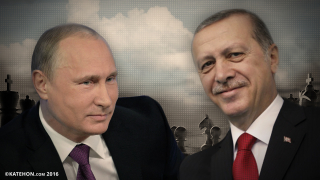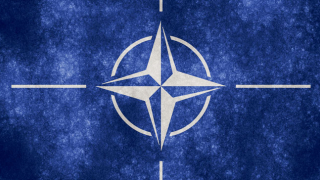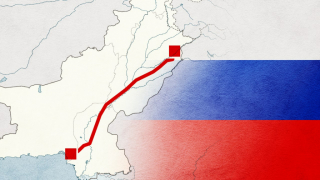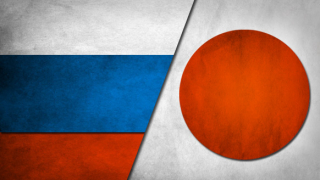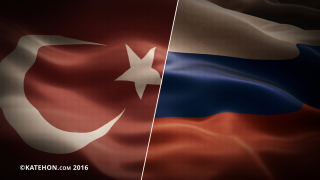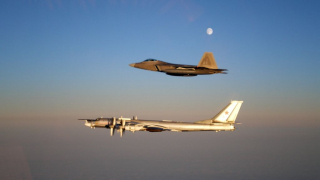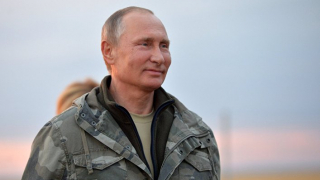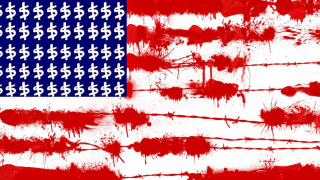Empire and imperialism
There is decolonization and “anti-colonialism”. The West has decided to resort to anti-colonial discourse in order to attack Russia and thus divide it into small countries thanks to the support it provides to the "anti-colonial" forces. None of this comes as a surprise: one only has to watch Indian TV programmes inviting "Ukrainians" with British and American passports who claim that Russia's current war against Ukraine is part of the immemorial "Russian colonialism" that Ukrainians have always fought against! What can we say about this? First, that the media manipulate language by confusing concepts such as "empire", "imperialism", "colony" and "province".
Let us begin by looking at the terms empire and imperialism: an empire is first and foremost a state unit that unites many peoples by preserving their political and cultural traditions for the sake of a universal mission, which is considered sacred by most of its members. Imperialism, on the other hand, was a political system imposed by the European countries born of Modernity in order to establish their direct or indirect control over various areas of the planet in order to exploit them economically in favour of the "capitalist system" as analysed by Marxist and semi-Marxist discourse. In short, imperialism is the policy pursued by the "core" countries in the service of capitalism, while empires exist in the periphery and semi-periphery.
Empire is much older than imperialism. Both share the desire to control large spaces, but the aims and ends are very different: empire is traditional and imperialism is a creation of Modernity; empire is sacred and imperialism is secularist; empire is based on honour and imperialism on the pursuit of wealth; empires are telluric military powers, while imperialism is a feature of maritime and commercial powers.
Empire and imperialism are doomed to play off against each other, as happened in the struggle between the Abyssinian Empire against Italy in the early 20th century or the European powers against the Quing Empire in the 19th century. However, it is not enough for "imperialism" to exploit the "savages", for what it really seeks is to open up relatively developed and rich markets to trade the products of "civilised" peoples. These markets can only be provided by the "empires" that exist outside the borders of the territories controlled by "imperialism". In addition, empires control large and important tracts of resources needed for imperialism. Of course, imperialist powers clash with each other for control of different colonies just as different empires fight for control of certain territories.
Russia was originally an Empire, but in the late 19th and early 20th centuries it began to behave like an imperialist power (especially against Iran and China) due to the influence of the West on it. On the other hand, the imperialist powers have always been ambitious to seize Russian territories under the slogan of "liberating" these territories from Eastern despotism by calling it a "struggle against Russian colonialism". The problem with all this is that Russian colonialism has never existed.
A colony is first and foremost an overseas territory dominated by a metropolis and although the colony may be populated with a "race" similar to that of the homeland, it is always considered inferior. For example, the people of the American colonies were not represented in the English Parliament, but they paid taxes and obeyed all the laws passed by Parliament, which was one of the causes of the American Revolution. In a colony the population is always oppressed for the benefit of the metropolis and an Indian maharaja could never aspire to become the prime minister of Britain. In contrast, in the Russian Empire, an Armenian and a Malorussian could occupy an important position (which was the case with Loris-Melikov and Bezborodko). In empires there are no legal differences between the different provinces that make up the empire, nor is there a regime of inequality between the "white lords" and the "coloured natives", as was the case in the territories dominated by the European colonial powers. Whereas in a traditional empire there are provinces, in modern imperialism there are colonies.
The first Russian State Duma was composed of representatives from all the provinces and confessions of the empire that made it up (except Central Asia, the only region about which we could debate whether it was a colony in the European sense or not). It is a very different case from that of France which, after the Second World War, had to choose between divesting itself of its African colonies or turning them into provinces that became part of its territory: Paris chose the former and rejected the latter. It is well known that General de Gaulle did everything he could to prevent Gabon's elite from trying to turn his territory into a "province" of France and cease to be a "colony" (in the legal sense of the term) in order to maintain the status quo.
Africa is the quintessential example of imperialism: the French only needed their African colonies to exploit them and preferred them to become "independent" countries rather than "provinces" of a great empire. Franafique", which replaced Paris' direct control over its former West African colonies, is a form of neo-colonialism disguised as a process of "decolonisation", for a true decolonisation of Africa would have involved turning all former colonies into departments on an equal footing with European territories or creating independent African states that were not controlled by Paris, but would unify a sovereign "great space" (an African empire) that could find its particular place in the world. In this way imperialism would be replaced by empire.
We can conclude by saying that an empire is a political organisation made up of a large territory that has a special historical mission, is autarchic or at least partially semi-independent. Empires will always be enemies of imperialism and colonialism ("neo-colonialism"), since a power that dominates so many territories and thinks differently, being able to maintain real and not formal sovereignty, will have to be fragmented in order to be better controlled.


